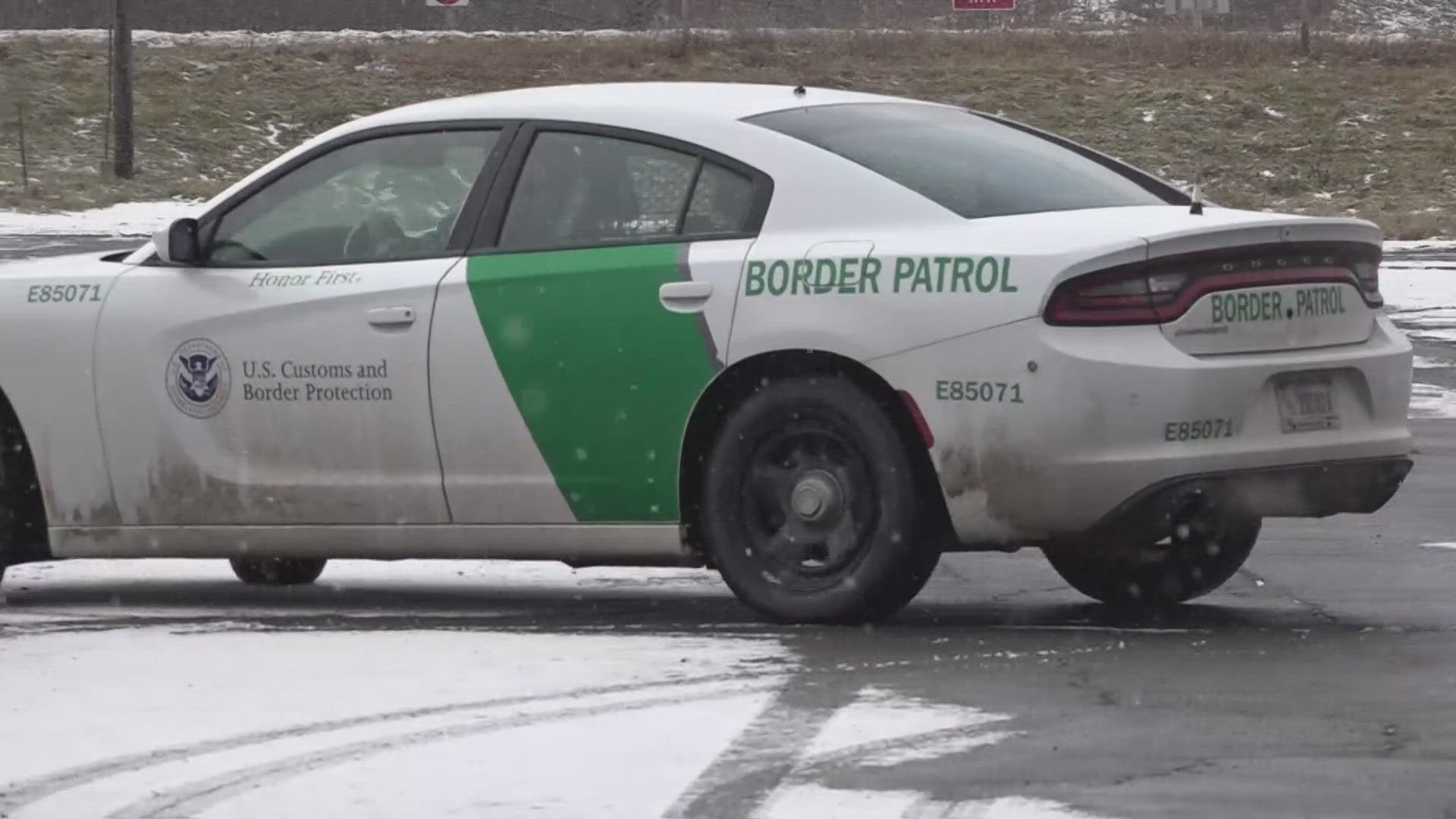HOULTON, Maine — The border between Maine and Canada is seeing a surge of illegal immigration into the United States. Data from U.S. Customs and Border Protection has reported a 178-percent increase in immigration arrests during the last 12 months.
"We're trying to solve this by going after the root cause," Dennis Harmon, the acting chief of U.S. Border Patrol Houlton Sector, which covers the whole of Maine, said Tuesday. "It's transnational, so it's many countries."
With the boundary between Maine and Canada stretching more than 600 miles—most of it remote and heavily forested—the state is becoming a more popular point of entry for undocumented immigrants to start their journey into the U.S.
"We’re just a transit route through," Harmon said, adding that those crossing into Maine often immediately enter Interstate 95 by car and drive to New York and points south.
While Harmon and others admit that many of these people evade their detection, some notable arrests tell a broader story of a border that draws people from roughly fifteen countries.
This fall, an agent in Jackman intercepted a Brazilian man, Ercilio Leonidas Da Silva Jr. lugging a suitcase through the forest in torrential rain. Another complaint in federal court details a man, Eduardo Ruis Rojas, slipping into Aroostook County after being deported to Mexico.
Most recently, Border Patrol intercepted 20 Romanian nationals driving near Hodgdon on Nov. 21.
While each instance has its own motivations, law enforcement is starting to take notice of what is shared. "There's a similar pattern in how these individuals are crossing," U.S. Attorney for the District of Maine Darcie McElwee, said on Tuesday.
Her office, as well as Border Patrol, thinks it may be starting to uncover an answer to why Maine is seeing such a surge in crossings.
According to CBP, many of those intercepted in the Houlton Sector arrived in Canada by plane using Electronic Travel Authorization, or ETF, a program allowing citizens from dozens of countries to enter Canada without a visa.
From there, McElwee believes people will leave the airport for the U.S. border. "That channel is being used, and on the other side of that, we're seeing individuals come into the state of Maine for that process."
Still, both McElwee and Harmon, two of the leaders in the effort to combat illegal immigration to Maine, admit there is much to learn.
"We simply don't know the individuals that we're not catching, that aren't being apprehended," McElwee said.
As for whether there are criminal organizations tied to the illegal crossings akin to the coyotes of the U.S. Mexico border who smuggle migrants to cities throughout the Southwest, Harmon, unwilling to share evidence, answered with one word, "Absolutely."
The Canadian Border Services Agency declined NEWS CENTER MAINE’s request for comment.

